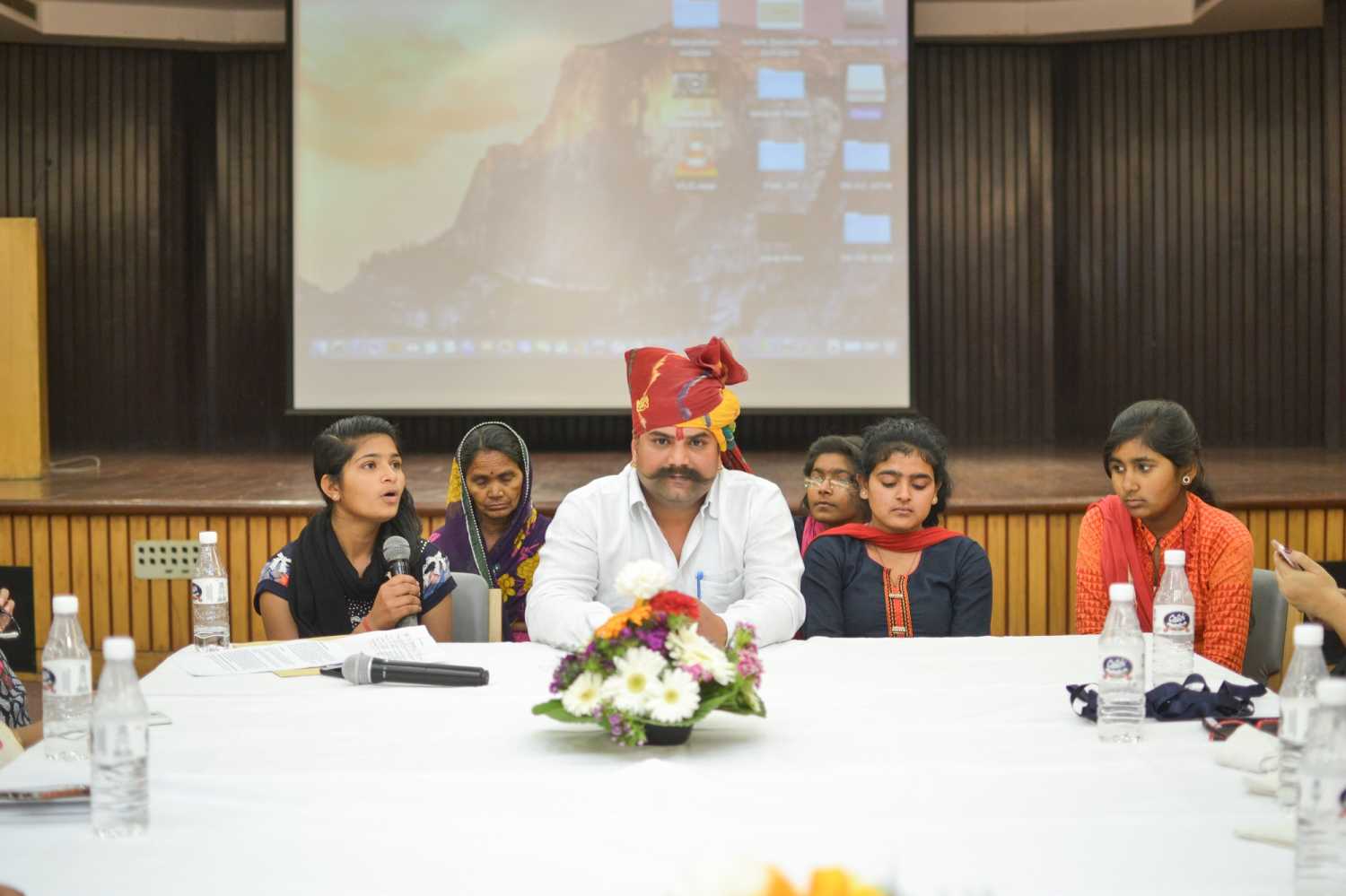A seminar titled 'Voice Studio: A dialogue among youth to explore ways to a democratic discourse', was held on the last day of the IAWRT 14th Asian Women’s Film Festival.
How young girls asserted their right to education and overcame problems at institutions
10 Mar 2018 12:09 IST
Updated : 12:52 IST


Sukhpreet Kahlon
A seminar titled 'Voice Studio: A dialogue among youth to explore ways to a democratic discourse', was held on the last day of the IAWRT 14th Asian Women’s Film Festival.
Women’s rights activist and documentary filmmaker Vani Subramaniam moderated the session and began by highlighting the fact that the past year had seen several students from universities across the country agitate against their administration over various issues. Primarily, the agitators felt that there are very few spaces to express oneself. If people are against the mainstream, they are silenced. The women who were part of the seminar had broken out against oppressive administrations in their own ways and the seminar sought to provide a forum for them to share their experiences.
An excerpt from Yousuf Sayeed’s film Campus Rising was screened as the film tracks student agitations in colleges and universities in India over the past few years. The documentary features several students voicing their grievances against their respective administration. The film set the tone for the discussion which began with Usha Shiv from Jadhavpur University highlighting the problems girls are dealing with on campus. She delineated the ways in which the state misuses its powers and exerts it upon the students by holding their admissions ransom.
Despite the immense pressures, she spoke of how they had managed to make some impact in small ways. For example, when the government imposed 12% GST on sanitary napkins, the students of Jadhavpur University put up vending machines for sanitary napkins in the campus. She concluded by saying that while their struggle is on, much more needs to be done.
Prajakta Prabhakar Shedde from Dr Babasaheb Ambedkar Marathwada University Aurangabad, spoke of the problems faced by students as the University saw protest on the issues of gender and caste. The problem of scholarships not being given to ST and SC students has been a contentious issue that the students have been protesting over for some time. She expanded the ambit of the discussion to talk of the ways in which the state was shutting down schools in backward areas under the pretext that there weren’t enough students to teach. Shedde also pointed out the problem of female hygiene and health, lack of toilets in schools, and the lack of access to sanitary pads.
Other speakers included Sirisha from the Centre for Women’s studies, University of Hyderabad, who was the first woman president of HCU; Satrupa from Jawaharlal Nehru University (JNU), and Lubna from Aligarh Muslim University (AMU).
In May 2017, the girls of a village 25 kms from Rewari, Haryana, forced the state government to accept their demand of upgrading the village school from class X to class XII, making it a senior secondary school. The nearest senior secondary school is in the neighbouring village which is 3 kms away and the female students of classes IX and X, feared being molested on the way if they were to travel that distance to the high school. The brave girls who took on the system were helped by the sarpanch of the village, Suresh Chauhan, who joined the girls in their struggle.

Chauhan, along with a few girls from the village and the dadi who also joined in the protest, were all present at the forum to recount their ordeal in dealing with the system and their experience. One of the girls said, “When we were harassed, mother would say that leave school. But that’s not a solution. Education is our right and every girl should have that right.”
Chauhan described the negative attitude of the villagers, saying that in the beginning, no one was ready to support the girls in their simple demand for high school education. He also described the pressure he faced from several quarters demanding that he abandon his support. He discussed his ordeal and how he almost gave up hope, but was successful in getting the villagers to join the demonstration and told the girls not to accept and internalize negativity. Thereafter, the media started to cover the story and they were finally successful in achieving their goal. In his impassioned address, he spoke of education as a basic right saying, “If girls are not educated, then what’s the point of saving them?”
Thanking the girls and sarpanch for sharing their journey, festival director Aaradhana Kohli Kapur said, “Yours is a story that gives us tremendous hope.”
The last speaker at the session was Sabika Abbas Naqvi, a student from Jamia, who is also the founder of Sar-e-Rahguzar, a movement to bring poetry onto the streets. In her spirited address, she highlighted the concerns of the women on campus and pointed out that there wasn’t much difference between the masculine politics that one faces inside and outside the campus saying, “Our biggest fight is that we will not become Bharat ki Mata”, highlighting the need for reclaiming spaces and subverting them.
In an attempt to meet this goal, Naqvi performs her protest poetry in public spaces. She said, “Wherever there is hatred and violence, we are going to fight back through love and poetry.”
Here's Naqvi performing her popular poem 'Meri Saree', which she read at the seminar as well.
The 14th Asian Women’s Film Festival was held from 5-7 March at the India International Centre, Delhi. The festival showcased 73 films from 20 countries, and hosted seminars, workshops and Filmy Adda.
Related topics
IAWRT Asian Women's Film Festival Sexual harassment
